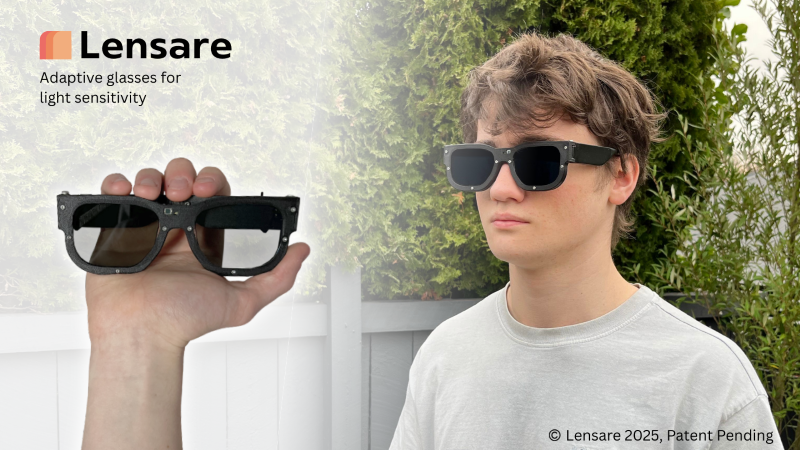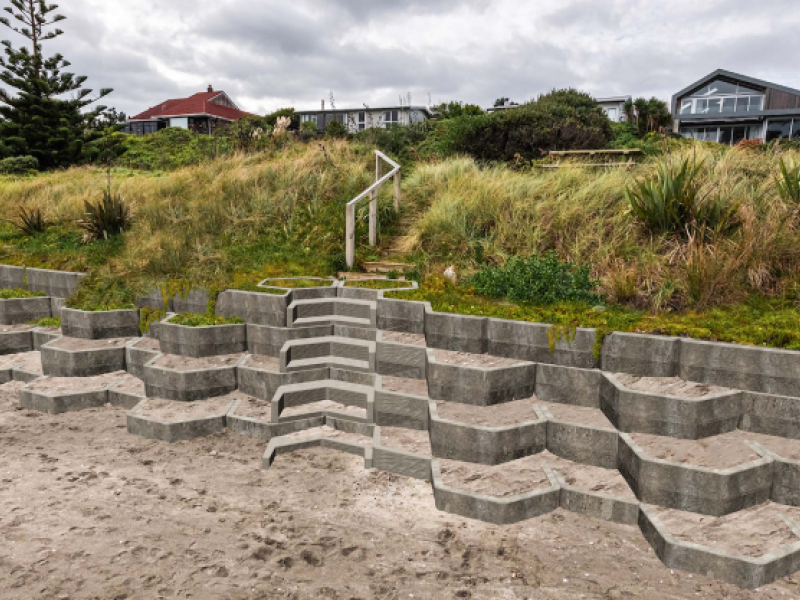Mark Campbell, a 19-year-old product design engineering student from the University of Canterbury, has been recognised as the New Zealand National Winner of the James Dyson Award for his invention, Lensare. Inspired by the challenges faced by people with photosensitive epilepsy and photophobia, Mark developed smart glasses that detect harmful light and instantly darken, helping protect users from light-triggered seizures and migraines in everyday environments.
Photosensitive epilepsy* and photophobia** affect thousands of people worldwide, with sudden flashes or specific light patterns capable of triggering seizures, migraines, and other serious health risks, yet existing eyewear solutions are largely passive and do not provide real-time protection.
Lensare is a pair of smart glasses that detect harmful light patterns and instantly darken using LCD lenses, providing near-instant protection for people with photosensitive epilepsy or photophobia. By actively responding to seizure and migraine-inducing light, the glasses offer a practical, wearable solution that could significantly improve safety and quality of life for thousands worldwide.
Seeing that existing solutions for photosensitive epilepsy were largely passive and ineffective, Mark was inspired to find a better approach. His curiosity about how welding masks filter light led him to realise the technology could be adapted to address this serious health problem.
Over 18 months, Mark designed and refined two prototypes, integrating sensors, electronics, and LCD lenses into a comfortable glasses frame while testing algorithms and adjusting design features to ensure the device was effective, reliable, and wearable. The project reflects his passion for using innovative technology to solve real world problems and protect people from serious health risks.
Lensare takes home $11,000 from the James Dyson Award national prize, to support its next steps in development and commercialisation. Mark plans to use the prize money to develop a third prototype with slimmer, more efficient electronics, explore production-ready components, and begin trials to test Lensare’s effectiveness for people with photosensitive epilepsy.
Reflecting on her achievement, Mark Campbell said: "Winning the James Dyson Award national prize is incredibly exciting, not just for the recognition, but for the opportunity it gives me to take Lensare to the next stage. The prize money will help me refine the prototype, test it with people who have light sensitivity, and move closer to creating a product that can genuinely improve daily life for those affected by photosensitive epilepsy."






